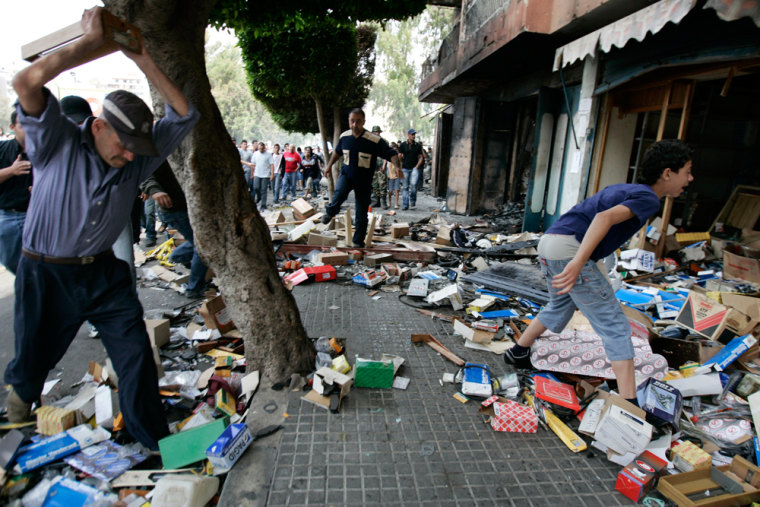Soldiers deployed throughout the mountains overlooking the capital Monday after at least 11 people were killed in clashes between government supporters and opponents in the area, security officials and paramedics said.
The fighting lulled late Sunday after pro-government Druse leader Walid Jumblatt called on his Druse opponents in the mountains, who are allied with Hezbollah, to mediate a cease-fire and hand over the region to Lebanese troops.
At least 11 people were killed in the town of Chouweifat near Beirut before a cease-fire went into effect there late Sunday, paramedics said. More than 20 people were also wounded, they said on condition of anonymity because they were not authorized to speak to the media.
Iran’s state-run Press TV reported on its Web site that 17 opposition fighters were killed in the mountain clashes. It did not elaborate, and the Iranian-backed Hezbollah militia refused to comment.
Officials could not immediately provide casualty figures from other mountain towns where fighting also raged a day earlier. But the latest deaths pushed to 49 the number of people killed since violence erupted Wednesday, in the worst internal clashes since the end of the 1975-90 civil war.
The unrest began last week when Lebanon’s government decided to sack the chief of airport security for alleged ties to Hezbollah, and also declared the militant group’s private telephone network illegal. Hezbollah leader Sheik Hassan Nasrallah said the decisions amounted to a declaration of war.
Arab foreign ministers met in Egypt on Sunday and pledged to send a delegation to Beirut to help find a solution. The delegation was expected in Beirut later Monday.
Beirut residents emerge from their homes
Meanwhile, shops began opening in the capital and more civilians were seen emerging from their homes, though traffic was lighter than usual. Many schools and universities were still closed.
A minor clash broke out at dawn between government supporters and Hezbollah-allied pro-Syrian gunmen in the busy Hamra district, security officials said on condition of anonymity, also because they were not authorized to speak to the media. Two cameramen for Al-Jazeera television, who arrived at the scene to cover the shooting, were lightly wounded and briefly hospitalized, the channel said.
Most gunmen have withdrawn from Beirut’s streets, but those from the Hezbollah-allied Syrian Social Nationalist Party remain posted outside the party’s offices in the Hamra and Rawche areas. Hamra is adjacent to the residence of top Sunni pro-government leader Saad Hariri, which is ringed by army commandos.
Major roads in Beirut, including the main airport highway, were still blocked Monday with huge sand barriers. The road closures are part of what the Hezbollah-led opposition has called a “civil disobedience” campaign, which it has vowed to continue until the government reconsiders the two decisions that sparked the violence.
Government deadlock
The Hezbollah-led opposition quit the Cabinet 18 months ago, demanding larger representation that would give them veto power over government decisions. The deadlock has kept parliament from electing a new president since November.
Army commander Gen. Michel Suleiman is the consensus candidate for president and the army’s success in calming Beirut over the weekend could enhance his chances of being elected.
But Hezbollah’s show of force in Beirut served a blow to Washington. The U.S. has long considered Hezbollah a terrorist group and condemned its ties to Syria and Iran. The Bush administration has been a strong supporter of Prime Minister Fuad Saniora’s government and its army for the last three years.
